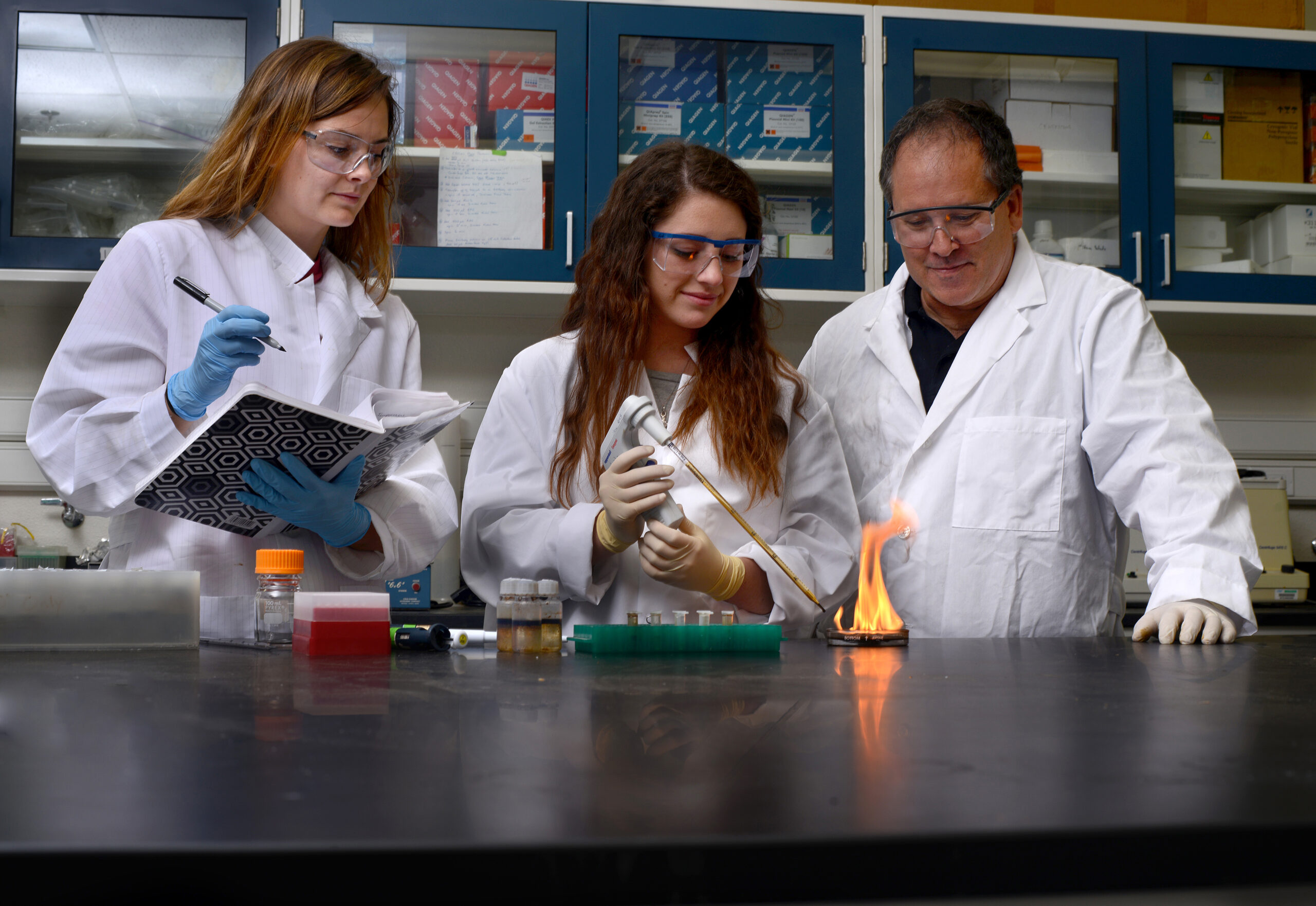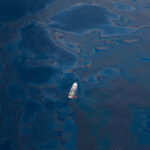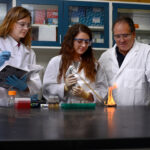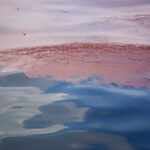Researchers work to understand magnitude of BP oil spill
When the oil-drilling rig Deepwater Horizonexploded and sank in April 2010, resulting in the largest oil spill in U.S. history, faculty and students from the University of West Florida were quick to respond to the man-made disaster.

“We realized pretty quickly that it could have serious effects here in Pensacola, that the oil could reach the beaches in this area,” said Dr. Jane Caffrey, a professor in the Center for Environmental Diagnostics and Bioremediation at UWF.“And we were concerned about what effect that would have on the environment, that it would have potentially wide-ranging effects.”
UWF researchers with the CEDBquickly developed a plan to sample water and sediment twice a week at seven different locations from Navarre to Perdido Key, despite not having grants or any other type of funding in place for the work.
They not only tested to see whether there was any oil reaching local beaches, but also what effect that oil was having on the microbial communities inhabiting those areas.
The UWF researchers began their sampling in May 2010. Oil would eventually begin to wash up on local beaches about six weeks later, said Dr. Wade Jeffrey, a professor at UWF and director of the CEDB.
“It’s a pretty good data set of before, during and after the oil actually washed up on the beach,” Jeffrey said of the UWF sampling. “We did that for free. We did it because we knew we should, not because we had grants or anything to do it. It’s our neighborhood. It’s where we live and so we felt compelled to get involved right from the beginning.”
Jeffrey said UWF researchers were able to detect oil in the sediment off shore from Pensacola Beach for “a good year or more” after the spill.
“But by two years after the spill, we couldn’t find it anymore,” Jeffrey said. “It had either been dissipated or broken down, or buried deeper than we could sample with the equipment we had. In a lot of ways, the Pensacola Panhandle dodged a bullet. We had oil, we had direct impacts, but the duration of those impacts was much shorter lived than places to the west of us.”
Caffrey said UWF’s research immediately after the oil spill was buoyed by a host of volunteers who would go out and sample at local beaches seemingly any time they were asked.
“The oil spill information, I think, was incredibly valuable, because within about a day, we were able to tell people, yes, there’s oil on the beach (or), no, there’s no oil on the beach,” Caffrey said. “So that was very useful for the people on Pensacola Beach. The tourism officials to say, ‘Hey, you can come to the beach; there’s no oil.’ And it was very helpful for the larger community to know that they could go in the water and know that they were not going to be exposed to the oil.”



